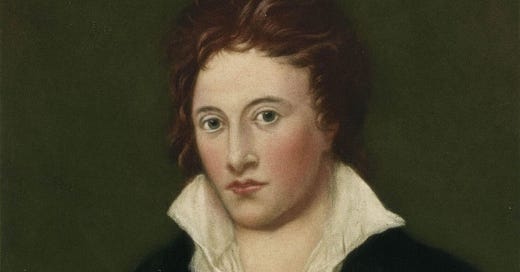Celebrating the Promethean Spirit of Percy Bysshe Shelley (4 August 1792 – 8 July 1822)
Profiles in Poetry
July 8th marks the date of Percy Bysshe Shelley’s unfortunate drowning in the Bay of Lerici, Italy. Despite the considerable sea of time that separates us from the age in which Shelley lived, the poet’s significance has by no means diminished. In our age of increasing cultural chaos, aggressive censorship, and rearing social anarchy, the Promethean spir…
Keep reading with a 7-day free trial
Subscribe to Age of Muses to keep reading this post and get 7 days of free access to the full post archives.




